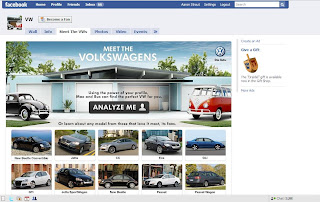The report itself is a good one, however, there was one point that stuck in my craw a little bit (and I think David's as well):
While social media players espouse a different agenda than the mainstream media, blogs still heavily rely on the traditional press -- and primarily just a few outlets within that -- for their information. More than 99% of the stories linked to in blogs came from legacy outlets such as newspapers and broadcast networks. And just four -- the BBC, CNN, the New York Times and the Washington Post accounted for fully 80% of all links.While I don't disagree at all with the concept that social media relies heavily on the same four legacy outlets for source material, this doesn't mean that social/new media can't or won't survive without these traditional media outlets.
What I will concede is that IF traditional media were to die -- something I don't think will ever happen -- we would fair just fine. The biggest shift in my mind would be a need for better filters that would help us collectively sort through the wheat and chaff. This likely is some combination of human curation and a variety of technologies relying on collaborative filtering and natural language search.
With that as a backdrop, here are my five thoughts on the future of journalism.
- As traditional advertising dollars continue to shrink, so too will budgets that support traditional advertising. Hopefully this means that rags like the New York Post go away and that gems like NPR and the Christian Science Monitor rise to the top via user support and innovative new sponsorship opportunties.
- Following up on an earlier thought, as social media news sources grow and traditional ones shrink, there will be an ever increasing need for curation and technology to help us find and filter. Think Alltop.com with less Guy Kawasaki.
- Traditional outlets will do themselves a favor by keeping an eye on the likes of The Austin Statesmen (h/t to Rob Quigley for the work he's leading there), AdWeek's AdFreak co-created by Mr. Morrissey and Boston.com with its clever use of hashtagged content, regularly updated blogs and complementary video footage.
- The need for PR firms and departments to brief/pitch top podcasters, bloggers, video bloggers and micro bloggers will continue to increase. Not saying this is a real "aha" but as a the reliance on the top news bloggers as primary source of information grows bigger, so too will a need to keep these influencers in the loop.
- Only a few select organizations will ever be able to charge for their content irrespective of whether or not micropayments ever catch on.
I'm quite sure I'm missing a bunch of hot topics here but this should get some of the creative juices flowing. Where do you see the future of journalism headed? Join the conversation in the comments below.


